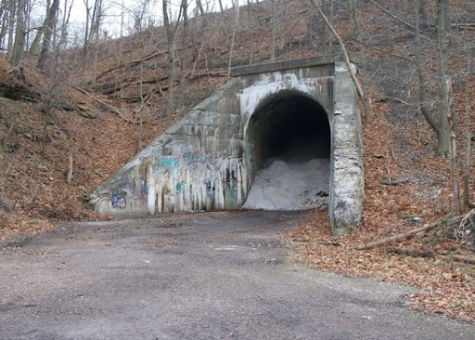Shopping Second Hand in Pittsburgh: Sustainable, Affordable and Trendy!

Racks of unique clothing and pieces at the Buffalo Exchange in the Southside.
Thrift stores have been around seemingly forever, with the first Salvation Army store opened in the late 1800s, and Goodwill in 1902. Lately, it appears that the act of shopping secondhand has been at the forefront of social media trends and movements. Historically second-hand stores have been great options for those who need less expensive clothing, shoes, and furniture. However, thrifting appears to have been gaining traction among all groups of people, regardless of socioeconomic status.
With the influx of environmental harm due to the fast fashion industry, shopping secondhand is becoming more desirable. Even though places like Amazon, Shein, Forever 21, and H&M seem like cheaper and more affordable alternatives to other clothing brands, these deals come at a great cost: fast fashion companies create a bulk of textile waste in landfills and tend to be lower quality. According to the Environmental Protection Agency, 17 million tons of textile waste were generated in 2018 alone, and only 2.5 million tons were recycled. So what can us consumers do to ease the impact of the fast fashion industry? The solution has been to start favoring the thrifts, and ditch buying off the rack.
If you find yourself new to the second-hand scene, it may seem overwhelming or impossible to know where to start. All across the Pittsburgh region lies a considerable amount of thrift stores that are worth the trip, not only for unique clothing but for making a positive environmental impact.
In the heart of Squirrel Hill lies one of the Avalon Exchange locations, which began as a family-owned, vintage clothing store in 1988. Avalon is one of the more popular re-sell stores that is a favorite among most Allderdice students due to its proximity to school, and its selection of trendy clothing. Along with more unique pieces, Avalon also offers basics as well. There is no short supply of simple jeans and t-shirts. Even though Avalon is a thrift store (meaning it buys clothing items off the general public and resells them) the prices are not exactly “cheap” relative to thrifting. Avalon seeks out contemporary, vintage, and designer pieces.
In the same realm as Avalon, lies the Buffalo Exchange in the Southside. It has only 17 total locations across the country, one being across the Monongahela River, on East Carson St. This second-hand store is a place to find quality modern or vintage treasures. The Buffalo Exchange also prides itself on reducing the environmental impact due to the fashion industry, and giving back to the planet instead, as its website states that “Customers buy, sell, and trade clothing, giving it a second life, and avoiding contributing to the demand and waste of clothing pollution.” The company participates in charitable operations like Tokens for Bags, where customers are given a token in exchange for a reusable tote bag that they can donate to one of three local charities. The Buffalo Exchange has raised over $803,000 for thousands of non-profit organizations. “Every token a customer has donated represents a plastic bag that was not added into circulation.”
On the more affordable side, there are also a number of Goodwills in the Pittsburgh area that offer clothing at great prices. This makes for great fashion DIYs, like cropping t-shirts, tye-dye, embroidery, and other fun alterations that you may not want to try on an expensive, brand-new item. If creating your own changes to clothes isn’t your thing, the Goodwills still offer good quality clothing that is perfect to wear straight off the rack. It’s no secret that thrifting at larger-scale stores can involve a bit of digging for favorable items, but among the seas of clothing, treasures can be found. On East Carson St. one of the bigger Goodwill locations can be found, other locations include East Liberty and Lawrenceville.
Despite the conveniences that chain stores offer, it is very possible to cut down your carbon footprint by reducing fashion waste. Including second-hand stores in your shopping trips can be a great way to find unique clothing at affordable prices.
Zoe Obenza-Bridges is a senior at Pittsburgh Allderdice High School. At the school newspaper, The Foreword, she is the lifestyle editor and enjoys investigating...






